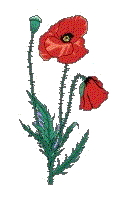
The
Western
Front
Museum
Last updated:
2008
2007
2006
2005
2004
2003
2002
2001
2000
World War I in the news
| Nov.2006 |
Commons vote calls for state funeral for last Great War veteran
OTTAWA (CP) by John Ward, Tuesday, November 21, 2006 The House of Commons unanimously approved a motion Tuesday asking the government to offer a formal state funeral for the last Canadian veteran of the First World War. It's believed there are only three survivors of the 600,000 Canadians who served under arms in the 1914-18 war: Dwight Wilson, who is 105 and Lloyd Clemett and John Babcock, who are both 106. But Babcock, who became an American citizen 60 years ago, doesn't want the honour, his wife Dorothy said in a telephone interview from Spokane, Wa. "His personal feeling is that, yes, he was a veteran, he did go to England, but he was not one that served in a very combative position over there," she said. "He was just waiting and thank heavens he didn't have to go -- the Armistice was signed." Babcock was only 15 when he enlisted in Sydenham, Ont., and was 16 when he arrived in England. His effort to get to the fighting in France ran into a policy that prohibited soldiers under 19 from serving at the front. "He is not a decorated war hero or anything like that," his wife said. Relatives of the other two survivors could not be reached immediately. Tuesday's vote marked a quick success for a petition campaign launched by the Dominion Institute just three weeks ago. The institute is a non-profit organization dedicated to promoting knowledge of Canada's history and heritage. "We're six or maybe 12 feet off the ground," said Rudyard Griffiths, the institute's executive director. "It's a pretty remarkable outcome. Hats off to all the parties for the unanimous consent. "It's a victory for vets, a victory for remembering this war." The institute opened its drive on Nov. 6, setting up an online petition. More than 100,000 people signed. While most were supportive of a state funeral, others opposed it. "It strikes me that honouring the last man standing runs contrary to the idea that each and every one of our veterans deserves recognition," wrote one opponent. "It's not a lottery," said another. But the public, newspaper editorials and eventually MPs took up the cause, especially as the annual Remembrance Day ceremonies came around. "Canada's veterans are our greatest heroes and our country's greatest volunteers," said Peter Stoffer, the Nova Scotia New Democrat who proposed the funeral motion in the Commons. "Offering a state funeral for the last Canadian veteran of the First World War is a fitting and symbolic tribute to recognize the great personal sacrifices of those who have served and who are currently serving our country." A state funeral is normally reserved for serving or former prime ministers, governors general and the like. It usually involves lying in state in the Parliament Building with flags at half-mast and the Peace Tower bell tolling, a procession to the church with a guard of honour and a military band and the attendance of dignitaries, including the Governor General and prime minister. The last such funeral was held in 2002, for former governor general Ray Hnatyshyn. Griffiths said he envisages a formal, public funeral service, maybe a ceremony at the National War Memorial and perhaps a program of local ceremonies across the country to remember the 60,000 Canadians who died in 1914-18. "We as a country now have an opportunity through this state funeral at the appropriate time to renew that solemn pledge that we made at the end of the First World War never to forget." He said Second World War veterans are particularly keen on commemorating their predecessors because some feel the Great War vets got less than their due. "We kind of let the old soldiers fade away without the proper ceremony, the proper respect and the proper commemoration," he said. "This is doing the right thing for a generation of men who maybe didn't get all of the honour, all of the respect that they so richly deserved when their generation was passing on in the 1970s and 80s." Griffiths said the fighting in Afghanistan seems to have touched a chord in Canadians and refocused their attention on the sacrifices of the past. "I think we as a country, maybe because of Afghanistan, are understanding once again that occasionally Canadians are called upon to pay an awesome, if not horrible, price for our citizenship, for the freedom, for the democracy we enjoy." |
| TOP | |
Member of the N.V.B.M.B. (Dutch branch of the European Cartridge Research Association)
Copyright © The Western Front Museum Foundation